1. “F*** tha Police” – N.W.A (1988)
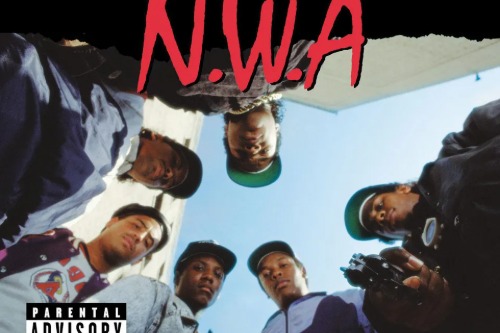
When N.W.A dropped this blistering takedown of police brutality, it sent shockwaves through the music industry. The song was banned from many radio stations and even triggered an FBI warning letter to the group’s label. Still, it resonated with a generation living through the crack epidemic and aggressive law enforcement. Its raw honesty turned it into a defining protest anthem of hip-hop.
Despite its ban from commercial radio, “F*** tha Police” found life in underground scenes, cassette tapes, and word-of-mouth hype. It gave a voice to marginalized communities and set the tone for politically conscious rap. Decades later, it re-emerged during Black Lives Matter protests, proving its staying power. Honesty that raw never fades—it just gets louder.
2. “Born in the U.S.A.” – Bruce Springsteen (1984)
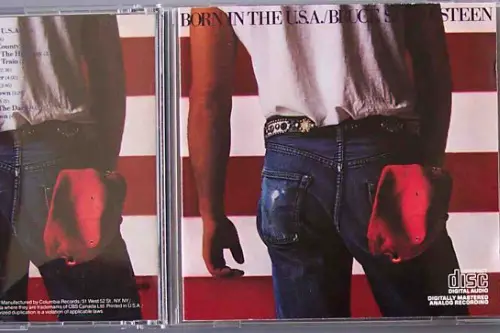
On the surface, this might sound like a patriotic rock anthem, but its lyrics tell a very different story. Springsteen was critiquing the treatment of Vietnam veterans and America’s broken promises to its working class. Many radio stations embraced the chorus while ignoring the verses entirely. Even politicians like Reagan misused it, missing the entire point.
Still, listeners picked up on the deeper message, and it became an anthem for disillusioned Americans. The contrast between the upbeat sound and critical lyrics was no accident—it was the Trojan horse of protest songs. Springsteen’s growl wasn’t pride—it was pain. And that honesty cut deeper than most ballads of the time.
3. “Jeremy” – Pearl Jam (1991)
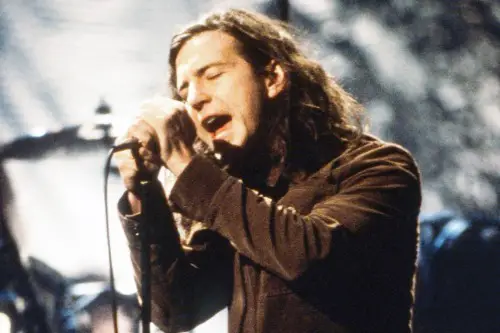
This haunting track told the story of a real student who died by suicide after being bullied and ignored. Its subject matter was so intense that some radio stations hesitated to give it airtime. The song’s chilling music video, which hinted at school violence, was even temporarily banned from MTV. But its power was undeniable.
“Jeremy” resonated with teens and parents who knew that school wasn’t always safe or kind. It brought mental health and youth trauma into the mainstream conversation. That kind of bravery was rare in early ’90s rock. Pearl Jam gave a face to the voiceless—and people listened.
4. “Stan” – Eminem ft. Dido (2000)
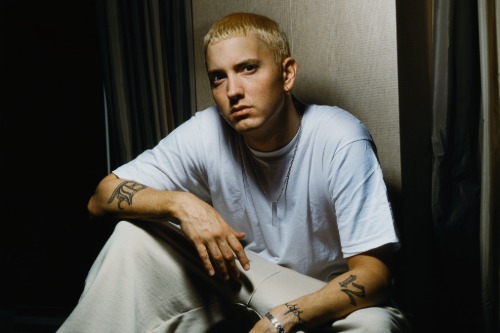
This one was a tough pill to swallow: a disturbing story about obsessive fandom and mental instability. Eminem didn’t sugarcoat it—he dove headfirst into themes of suicide, neglect, and parasocial relationships. While radio edits chopped out key verses, fans still flocked to the raw, unfiltered album version. “Stan” became an archetype, even lending its name to a new term in pop culture.
Despite the dark narrative, it was impossible to ignore the track’s brilliance. Eminem’s storytelling was cinematic and fearless, confronting both celebrity culture and personal responsibility. Even if it wasn’t getting prime radio play in full, everyone knew exactly what it was about. Honesty like that can’t be censored—it just finds another channel.
5. “God” – Tori Amos (1994)

Tori Amos asked a bold question in the chorus: “God, sometimes you just don’t come through.” In a decade when female anger was still considered taboo, this track went all in. Many stations balked at playing it due to its religious overtones and raw lyrics. But Tori wasn’t trying to be safe—she was trying to be honest.
The song dissected toxic masculinity, spiritual disillusionment, and gender politics—all wrapped in poetic piano pop. Fans gravitated to it not just for the melody, but for the courage it took to challenge divinity itself. Even without major radio rotation, it became a rallying cry for women questioning the systems around them. Tori didn’t need permission to be powerful.
6. “Same Love” – Macklemore & Ryan Lewis ft. Mary Lambert (2012)

At a time when LGBTQ+ rights were still a political battleground, “Same Love” made a clear statement. It tackled homophobia in hip-hop, religion, and American culture—topics rarely addressed so directly in rap. Some radio stations hesitated, worried about controversy from more conservative listeners. But the track exploded anyway, especially after its live Grammy performance.
Listeners appreciated its compassion and clarity, and Mary Lambert’s chorus added a heartbreaking touch of humanity. It helped push the conversation about equality into the mainstream, ahead of the 2015 legalization of same-sex marriage. Honesty in music like this doesn’t just entertain—it changes minds. And that’s why it stuck.
7. “What’s Going On” – Marvin Gaye (1971)
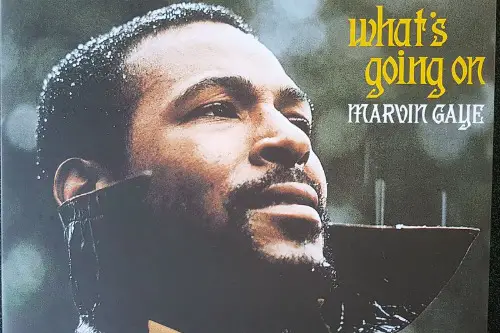
Motown wasn’t sure what to do with this record at first—it was too political, too reflective, too different. But Marvin Gaye insisted on releasing this plea for peace, which addressed war, poverty, and the environment. Radio stations were cautious, but listeners were captivated by its gentle urgency. It went on to become one of the most important soul songs ever made.
The track was born from Gaye’s own grief and confusion after his brother returned from Vietnam. That personal pain gave it authenticity, and people connected with it immediately. Instead of anger, Marvin offered empathy—and that honesty made it timeless. Sometimes, the softest truths are the hardest to ignore.
8. “Strange Fruit” – Billie Holiday (1939)

This was one of the earliest examples of a song being too honest—and it cost Billie dearly. “Strange Fruit” was a graphic condemnation of lynching in the American South. Radio stations outright refused to play it, and the FBI reportedly surveilled Holiday because of it. But the song became a whispered anthem of resistance.
Its stark, mournful delivery cut through the gloss of entertainment and forced listeners to confront reality. Holiday’s performance was trembling and unwavering, the truth laid bare in every note. It’s a chilling reminder of how powerful—and dangerous—honesty can be. And yet, it endures.
9. “Closer” – Nine Inch Nails (1994)

With its infamous lyric, “I wanna f**k you like an animal,” this song was basically radioactive to mainstream radio. Even with a heavily censored version, it struggled to get airplay. But the raw sexuality and seething frustration in Trent Reznor’s delivery made it unforgettable. It became an industrial rock anthem precisely because it didn’t hold back.
“Closer” wasn’t just about sex—it was about control, obsession, and the messiness of desire. It embodied the chaos many people felt in the ’90s but couldn’t say out loud. So even if the radio wouldn’t play it, clubs, MTV, and word of mouth did. It was the kind of brutal honesty that made you uncomfortable—and that was the point.
10. “Family Portrait” – P!nk (2001)

P!nk went somewhere few pop stars dared: she wrote a letter from a child to her feuding parents. The song’s brutal depiction of a broken home hit hard, especially for kids going through the same thing. Radio stations tiptoed around it, unsure how to market a sad, confessional ballad in a pop world full of escapism. But fans clung to its truth like a lifeline.
“Family Portrait” didn’t need flashy production or dance beats—it had raw pain. It validated listeners’ experiences in a way few songs had before. P!nk’s honesty made her a different kind of pop star: one who wasn’t afraid to be real. And that’s why it still hits just as hard.
11. “American Idiot” – Green Day (2004)

Green Day didn’t mince words when they dropped this explosive critique of post-9/11 media fearmongering. With lines like “One nation controlled by the media,” it was obvious this song wasn’t aiming for neutrality. While alternative stations embraced it, many Top 40 and pop-rock outlets kept their distance. Still, it tore through the charts and became an anthem for a generation of disillusioned youth.
“American Idiot” captured the tension of the Bush era in a three-minute punk sprint. It was angry, sarcastic, and most of all—honest about how many young Americans felt. You couldn’t fake that kind of urgency. It became more than a song—it was a flag for the frustrated.
12. “Under the Bridge” – Red Hot Chili Peppers (1992)

This haunting ballad chronicled lead singer Anthony Kiedis’ feelings of isolation and his past struggles with heroin. It wasn’t written to be a single, let alone a hit—but fans connected instantly with its raw vulnerability. While it got radio play, some stations initially hesitated because of its dark subject matter. This was no party anthem—it was a cry for connection.
What made it so resonant was Kiedis’ willingness to strip away bravado and talk about loneliness. The song’s honesty helped pull rock in a more introspective direction. It gave permission for sadness in a genre built on swagger. And that shift was game-changing.
13. “This Is America” – Childish Gambino (2018)
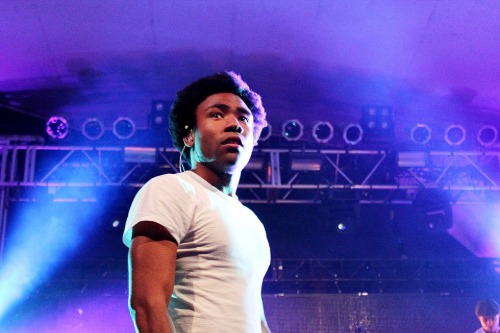
The song dropped with a video that made headlines instantly: gun violence, minstrel imagery, chaos. Lyrically sparse but symbolically rich, it forced Americans to confront the dissonance between entertainment and reality. Radio didn’t quite know what to do with it—it was too heavy, too weird, too true. But it went viral, becoming a cultural moment overnight.
“This Is America” held up a mirror with no filter and dared people to look. It didn’t offer solutions—it just made you feel the weight of everything. The honesty was in what wasn’t said as much as what was. And that silence spoke volumes.
14. “Fast Car” – Tracy Chapman (1988)
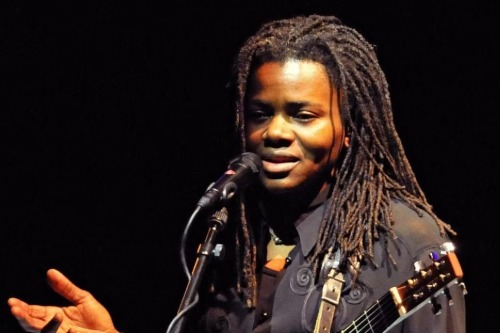
At first listen, it’s just a pretty folk song—but then you catch the story: poverty, domestic cycles, desperation. Chapman’s voice is steady, but the pain behind the lyrics is palpable. It didn’t fit into late-’80s radio norms, which leaned toward glossy pop and hair metal. And yet, it broke through because it was real in a way most songs weren’t.
“Fast Car” didn’t need to shout to make a point—it whispered, and people leaned in. It became a quiet anthem for the working class and the dreamers stuck in dead-end lives. Its success was a reminder that honesty could be beautiful and bruising at the same time. Chapman didn’t dramatize her truth—she simply told it.
15. “Alright” – Kendrick Lamar (2015)

“Alright” arrived at a time when the country was grappling with police violence and systemic racism. While some radio stations embraced it, others were wary of the politically charged message. The chorus—“We gon’ be alright”—became a protest chant during Black Lives Matter marches. That kind of crossover from music to movement doesn’t happen by accident.
Lamar mixed poetic lyricism with searing commentary, threading hope through the pain. The song didn’t ignore reality—it danced in defiance of it. Even with spotty airplay, it reached hearts and streets alike. It proved that hip-hop could still be revolutionary.
16. “You Oughta Know” – Alanis Morissette (1995)

This was not your typical breakup song—it was feral, unfiltered, and furious. Alanis unleashed every ounce of rage and betrayal, even referencing sex in a movie theater—something that made radio censors squirm. Still, despite the initial shock, it caught fire. Audiences were hungry for something this honest.
The song cracked open a new era of confessional alt-rock, especially for women. Morissette didn’t pretty up her emotions—she let them bleed. Radio may have clipped a few lines, but there was no containing that kind of rawness. It was messy, cathartic, and absolutely unforgettable.
This post 16 Songs That Were Too Honest for American Radio—but Became Anthems Anyway was first published on American Charm.


